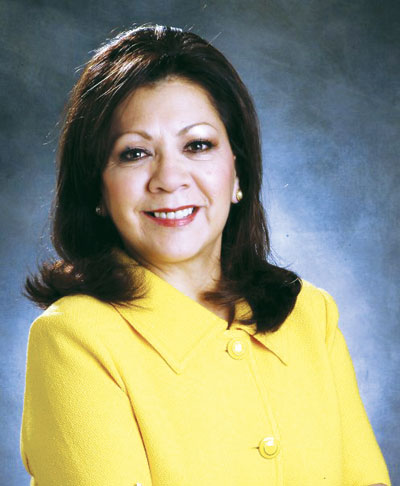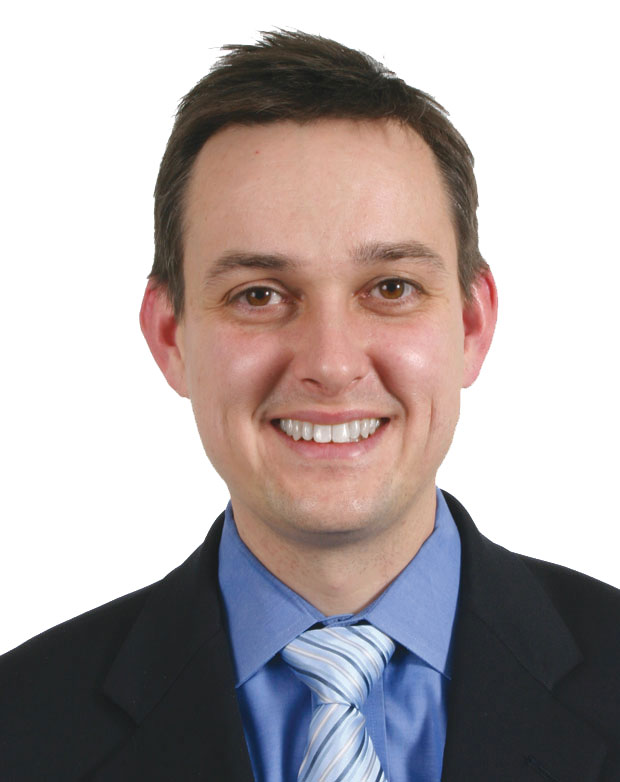Dallas city councilman says he’ll introduce measures in support of marriage equality, employment nondiscrimination in early 2013
Dallas City Councilman Scott Griggs announced his intention this week to introduce two pro-LGBT equality resolutions as part of his 2013 ordinance and resolution agenda.
Griggs said he’s working on a marriage equality resolution and one supporting a statewide ban on anti-LGBT job discrimination. He plans to introduce them early next year when the council sets its legislative agenda.
“Equality Texas and others have made employment nondiscrimination a top priority in the state Legislature next year,” he said. “Now is the time to show our support for these efforts in Austin.”
As for the marriage resolution, Griggs said it’s important because “marriage is a powerful affirmation of love and commitment, as well as a source of social stability and recognition.”
The resolutions could help position Griggs, who currently represents District 3, to compete for LGBT votes next year in District 1. Redistricting has placed Griggs and Councilwoman Delia Jasso, who created the city’s LGBT Task Force, into the same North Oak Cliff district. A lawsuit challenging the city redistricting map is pending.
The Austin City Council passed a marriage equality resolution earlier this year and Fort Worth passed a resolution in support of statewide employment nondiscrimination a few years ago.
Equality Texas Executive Director Chuck Smith said resolutions are vital because municipal work helps state lawmakers come around to supporting LGBT issues and eventually implementing laws.
“As more and more cities, including large cities like Dallas, demonstrate that equality is important for the residents and for the vitality and continued success of their community, it helps state lawmakers in their evolutionary process with our issues,” Smith said.
Councilwoman Angela Hunt said she will support the resolutions and she hopes constituents will contact their council members to secure their passage.
“When it comes to civil rights issues that directly affect my constituents, I absolutely believe it’s our role to address those injustices,” Hunt said. “I think it’s absolutely critical that we have the support of the council lined up ahead of time prior to pushing forward because I think it could be a real setback if the council did not pass those measures.”
Although Griggs said he’s been working on the resolutions for some time, the news comes two weeks after the Human Rights Campaign gave the city of Dallas a score of 76 on its new Municipal Equality Index, which ranked 137 cities on their gay-friendliness. Fort Worth received an 89.
Paula Blackmon, chief of staff for Dallas Mayor Mike Rawlings, said Rawlings would need to see the language of the resolutions before deciding whether to support them.
Blackmon also said the mayor’s goal is to increase the score by 10 percent by next year.
“There is room for improvement,” Blackmon acknowledged.
Blackmon said Fort Worth made its employment nondiscrimination resolution part of its legislative package, adding that it’s uncertain whether Dallas could pass one with “the climate here internally.”
She said Rawlings has agreed to go to Austin with representatives from Resource Center Dallas to help the state bill gain support.
The resolution would likely have faced opposition from Councilwoman Vonciel Jones Hill, who chairs the legislative committee.
 Hill has expressed her opposition to attending gay Pride in the past because of her religious beliefs. Resolutions have to be approved by the legislative committee before they are brought before the council unless they receive five signatures from council members.
Hill has expressed her opposition to attending gay Pride in the past because of her religious beliefs. Resolutions have to be approved by the legislative committee before they are brought before the council unless they receive five signatures from council members.
Griggs said he’s optimistic that his resolutions can pass both the legislative committee and the council.
Dallas lost points on the Municipal Equality Index for things like not having a Human Relations Commission, not offering comprehensive transgender health benefits and not having outspoken pro-equality city officials — likely due to Rawlings’ refusal to sign a marriage pledge earlier this year. Rawlings has said he personally supports marriage equality.
“He’s not signing any pledges and I don’t think he’s going to at this point sign any pledge moving forward,” Blackmon said. “We’re working together on issues, and signing a pledge shouldn’t be the only indicator of your dedication to an issue.”
Blackmon said she didn’t know whether Rawlings had approached the trans healthcare benefits issue with City Manager Mary Suhm. At an LGBT Pride Month event in June where Suhm was among the speakers, she said the city’s heath benefits are not good in general and encouraged the audience to remind their council members and other officials that transgender benefits are needed as the economy improves and the budget can cover more.
Asked about a Human Relations Commission, Blackmon said if the city’s LGBT Task Force thinks Dallas needs one, “we’re open to seeing what it looks like and how it works.”
Calling the report a “performance review,” Blackmon said the LGBT Task Force would make recommendations so the city can “start working toward creating a score that we feel is a very clear representation of how we value the community.”
Jasso, who created the LGBT Task Force in 2009, said she wasn’t “completely satisfied” by Dallas’ score, acknowledging that Dallas “has accomplished quite a bit in the last few years for LGBT equality, for both its residents and employees.”
Jasso said the Task Force will review the report and outline areas for improvement among city policy and services. She echoed Blackmon’s goal to increase the score next year by 10 percent.
Since its creation, the Task Force has helped review the city’s discrimination complaints based on sexual orientation and gender identity. Jasso said it has also helped secure a full-time LGBT liaison for the police department, as well as sensitivity training for Dallas Fire-Rescue and veteran officers.
Pam Gerber, a member of Jasso’s LGBT Task Force since its creation in 2009, said she was “pleasantly surprised” by Dallas’ score. She said it highlights room for improvement, but shows a good effort on behalf of the city when officials weren’t aware that there would be a new HRC report.
“I’m thrilled that we’re the eighth-largest city in the country scoring that well without even trying. So imagine what could happen if we did try,” she said, adding that it isn’t just about improving a score. “We should never stop. We can always do better. I think the best intentions are already there and now the numbers just quantify it.”
Gerber said the Task Force should work with the RCD and city leaders to determine priorities for areas of improvement.
Responding to the perception that the Task Force is secretive and hasn’t accomplished much, Gerber said its members don’t try to keep it a secret and are always trying to bring in new members, and she often meets new people at the meetings.
While the last few monthly meetings have been postponed for unknown reasons, she said she is proud of the sensitivity training its members are continually working on and the city Pride events members planned in June.
“There’s always people who think that groups aren’t doing much and that groups are ineffective,” she said. “If they were in the room and knew what was going on, they may not say that.”
Gary Sanchez, Jasso’s assistant, said the Task Force meets monthly. When asked if media could attend the January meeting, he said Jasso wanted to discuss that with members at the meeting and maybe media would be allowed to attend in February.
Normally, members mention someone they would like to bring to a meeting and it is discussed about what a member would contribute to the discussions and work.
A few months ago, he said one member brought a few people without asking, causing a “little bit of a stir.”
This article appeared in the Dallas Voice print edition December 14, 2012.


